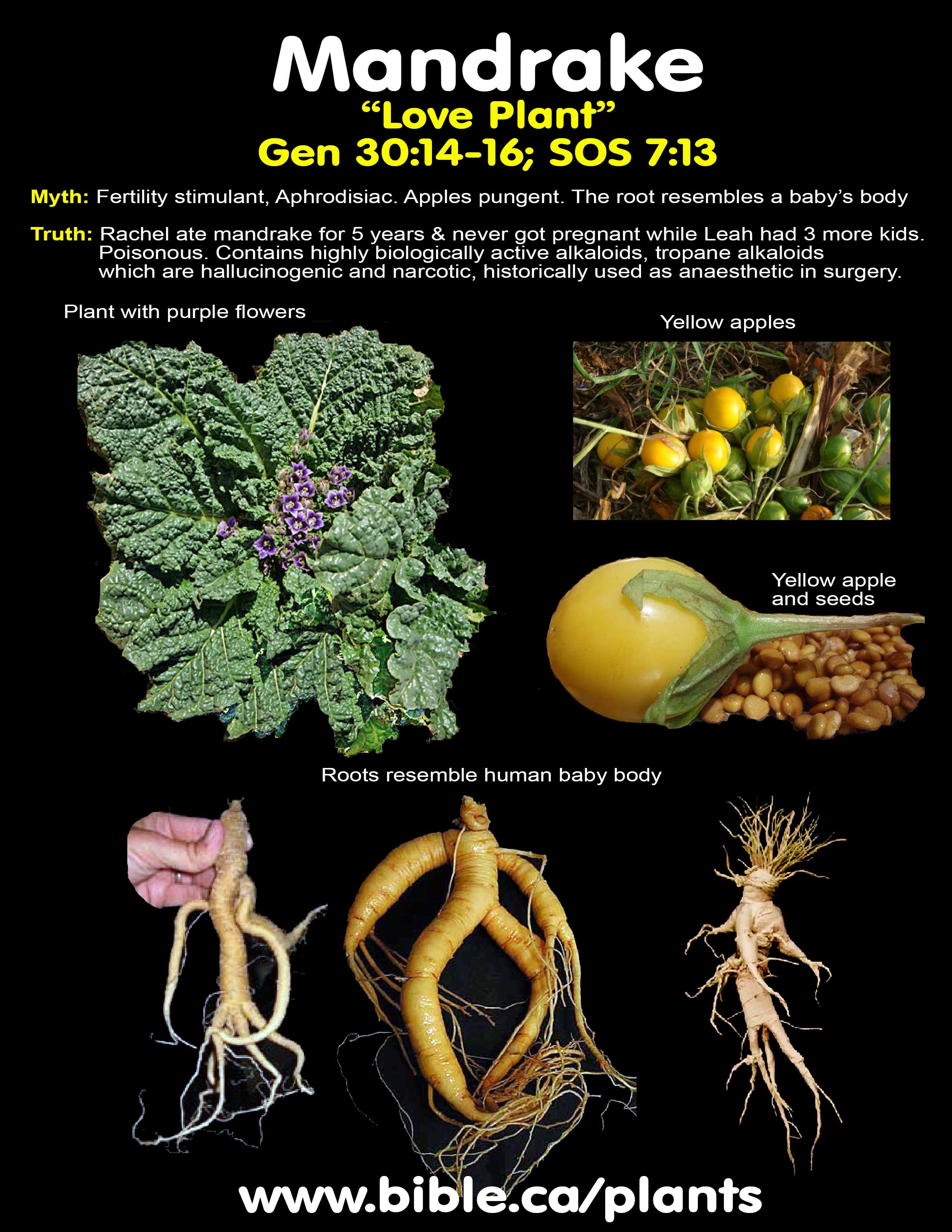

It has been desired in many cultures because of. ( Antony & Cleopatra 3.5.4)Maybe Rachel just wanted the mandrakes to help her sleep. The mandrake is a Mediterranean plant with blue flowers in the winter and yellow, plum-like fruit in the summer. It is a common plant all over Palestine, growing particularly in the. That I might sleep out this great gap of time Mandrakes are the roots of the Mandragora officinarum, a member of the potato family. In this reference, it is the smell of the mandrake that has aphrodisiac qualities and not the ingestion of any part of the plant. ( Othello 3.3.331-3) Give me to drink mandragora. The Bible reaffirms the romantic nature of mandrakes in Song of Songs 7:14: The mandrakes yield their fragrance, at our doors are all choice fruits Both freshly picked and long-stored have I kept, my beloved, for you. Shall ever medicine thee to that sweet sleep The fruit had a pleasant taste and odor and was supposed to ensure conception ( Gen.

Syrup made from mandrake root (the plant is related to the poppy) has some narcotic properties, as Shakespeare knew: Rachel may get the dudaim, but Leah gets the dodim. the root of a mandrake formerly used especially to promote conception, as a cathartic, or. My take is this: in a narrative that is driven from verse to verse by wordplay, there is another wordplay - nothing more - implicit in this pericope. mandrake: noun a Mediterranean herb (Mandragora officinarum) of the nightshade family with large ovate leaves, greenish-yellow or purple flowers, and a large usually forked root resembling a human in form and formerly credited with magical properties. "Leah") but did they? Rachel conceives in 30:22, after the mandrake episode is over and Leah has conceived again and again. Gale Yee says "the mandrakes worked for Rachel" (ABD s.v. In fact, Leah has three more children until Rachel finally gets pregnant. If Rachel wants the mandrakes to help her conceive, why does she then give away Jacob for a time? After the mandrake episode, it is Leah who conceives, not Rachel. This month is further confirmed by the mention of the mandrake plant fruit which even today, typically ripens in April or May.

In this instance, meaning roughly the month of May. Events in ancient times were commonly dated by agricultural seasons. That, at any rate, was the accepted idea in Christian commentary, which saw the sweet scent of the mandrakes as a symbol of a good reputation or good deeds: "the wholesome odor of a good example" (St. The Bible tells us that during the wheat harvest, Reuben brought mandrake plants home to Leah. Perhaps Rachel wanted them just for their pleasant smell. "Mandrakes" appear in the Bible only one other time, in the Song of Solomon: "The mandrakes give off scent" (7:13). Why does Rachel want Leah's mandrakes? In Hebrew the word is dudaim, whose etymology might suggest a connection with dodim, "sexual love." Therefore, it has been speculated, eating mandrakes was thought to aid desire or fertility, and Rachel, barren till then, wanted them so she could conceive.īut this is not altogether clear from the text. Rachel wants the mandrakes, and she has something. Then Rachel said to Leah, Give me, I pray thee, of thy son's mandrakes." A mandrake root, which looks like a newborn baby, was often considered a fertility charm and an aphrodisiac. Genesis 30:14 "And Reuben went in the days of wheat harvest, and found mandrakes in the field, and brought them unto his mother Leah.


 0 kommentar(er)
0 kommentar(er)
